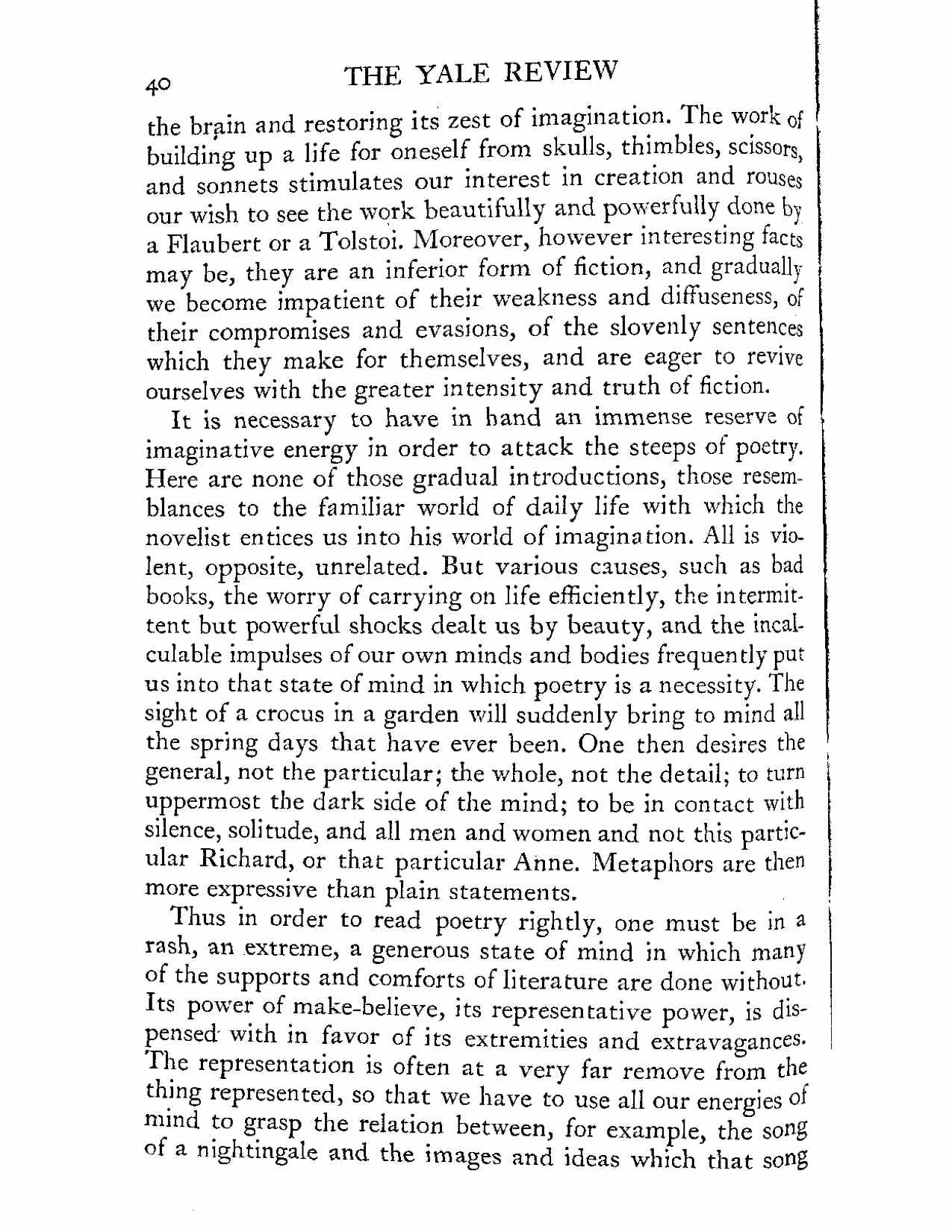
the brain and restoring its zest of imagination. The work of
building up a life for oneself from skulls, thimbles, scissors,
and sonnets stimulates our interest in creation and rouses
our wish to see the work beautifully and powerfully done by
a Flaubert or a Tolstoi. Moreover, however interesting facts
may be, they are an inferior form of fiction, and gradually
we become impatient of their weakness and diffuseness, of
their compromises and evasions, of the slovenly sentences
which they make for themselves, and are eager to revive
ourselves with the greater intensity and truth of fiction.
It is necessary to have in hand an immense reserve of
imaginative energy in order to attack the steeps of poetry.
Here are none of those gradual introductions, those resem-
blances to the familiar world of daily life with which the
novelist entices us into his world of imagination. All is vio-
lent, opposite, unrelated. But various causes, such as bad
books, the worry of carrying on life efficiently, the intermit-
tent but powerful shocks dealt us by beauty, and the incal-
culable impulses of our own minds and bodies frequently put
us into that state of mind in which poetry is a necessity. The
sight of a crocus in a garden will suddenly bring to mind all
the spring days that have ever been. One then desires the
general, not the particular; the whole, not the detail; to turn
uppermost the dark side of the mind; to be in contact with
silence, solitude, and all men and women and not this partic-
ular Richard, or that particular Anne. Metaphors are then
more expressive than plain statements.
Thus in order to read poetry rightly, one must be in a
rash, an extreme, a generous state of mind in which many
of the supports and comforts of literature are done without.
Its power of make-believe, its representative power, is dis-
pensed with in favor of its extremities and extravagances.
The representation is often at a very far remove from the
thing represented, so that we have to use all our energies of
mind to grasp the relation between, for example, the song
of a nightingale and the images and ideas which that song






